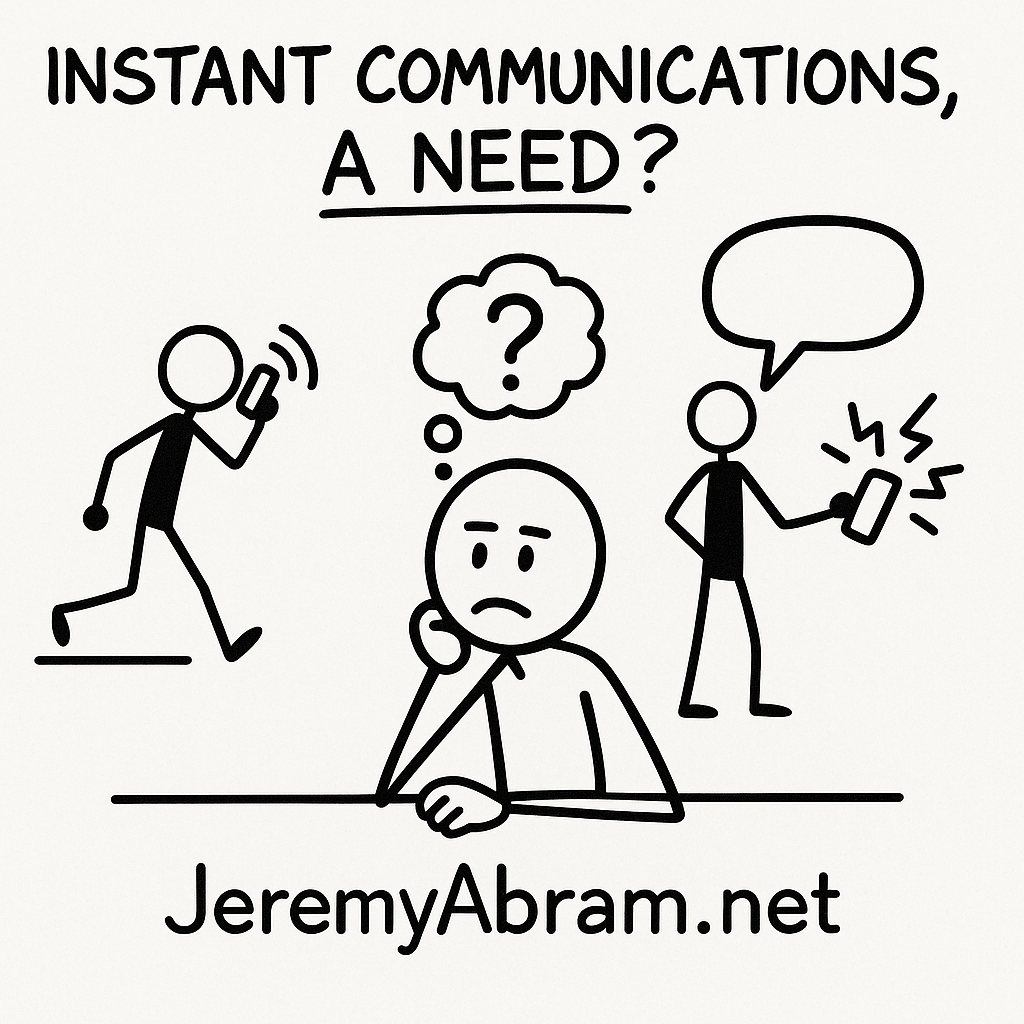
Instant communication alters the previously proven ability to make decisions and challenges that same decision-making process with the right-now rather than think, reflect, assess, react, and then wait. This means that what once required time to rant, complain, or compliment— and to encourage things — happens much faster today than even ten years ago. It is much faster than a postage stamp on an envelope headed to the recipient, and far shorter than the six-week response time such writings once required.
Even writing takes effort and time, and more thought is required to execute it. Phone calls take effort as well, yet faster methods now exist to get a point across. While phone calls are still possible today, their nature has changed. One can call while walking down the street or even while driving a car (while concentrating on another very important task and responsibility).
The next level of this is how we argue and debate — and how the triggers of arguing fall in line with faster methods of reaction. It is possible that conflicts and even wars have started that never needed to, simply because communication happened too fast, too short, and not well-thought-out — without enough time (not money) invested into it.
I’m not sure how this works out over a longer timeline — we haven’t seen this yet in our lifetime. This is just a comparison between what once could be considered “elementary” methods, used in the majority for sustained periods, and the newer, faster methods that have not yet been proven better. They may be more technologically advanced, but if what we do merely gets faster without improving anything, then it is logical to assume that as we do more, we erode or wear down elements of ourselves in the process.
Everyone acting at full speed at the same time creates stress — at its smallest — though the impact could be far greater.
Maybe the only way to adapt well is not to let go of what you are used to simply because an advertisement tells you someone’s shoes are better, or because someone close to you says so. Verify sources, think about things more, and learn — do what is best for you.
Take time to focus and pay attention. Those two things have always served me well, and I am still evaluating the rest.
Mix-and-match! It seems that when we don’t take the time to think, focus, and pay attention, we make simple — and sometimes grand — mistakes. And simple mistakes are the easiest to repeat. But do not forget: they multiply and lead to future grand issues.
(c) Jeremy Abram
Leave a Reply